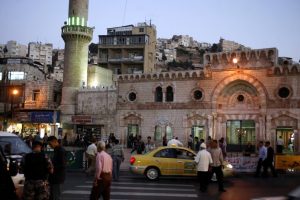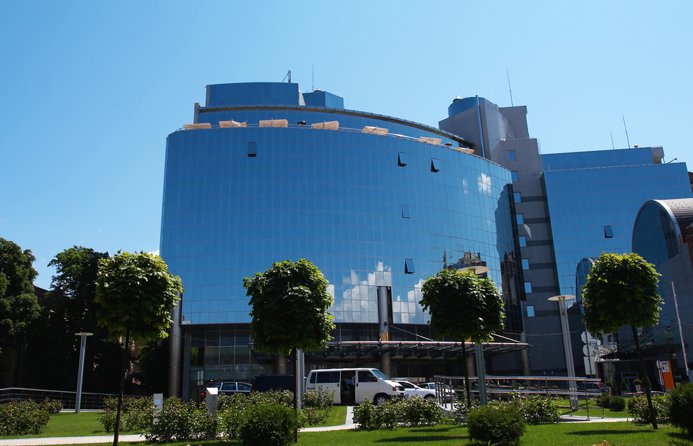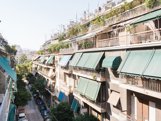Real estate market in Jordan: foreigners inflate prices
 At the end of February 2018, Jordan approved a program for obtaining citizenship for investing in the country’s economy and an additional scenario – issuing a permanent residence permit in exchange for the purchase of real estate worth $ 282,000. Although only 500 applicants per year can receive citizenship or a residence permit in Jordan hopes that the new investment program stimulates the inflow of foreign capital. Will the new measure affect the local real estate market?
At the end of February 2018, Jordan approved a program for obtaining citizenship for investing in the country’s economy and an additional scenario – issuing a permanent residence permit in exchange for the purchase of real estate worth $ 282,000. Although only 500 applicants per year can receive citizenship or a residence permit in Jordan hopes that the new investment program stimulates the inflow of foreign capital. Will the new measure affect the local real estate market?
Economy dependent on non-residents
The Hashemite Kingdom of Jordan is one of the smallest countries in the Middle East: its area is 92 thousand km², which is 20 times smaller than the area of Saudi Arabia, 10 times less than Egypt, and twice Syria. According to estimates by the Ministry of Statistics (Departments of Statistics) for 2017, 10.1 million people live in Jordan, 42% of them live in Amman, the capital of the country. According to the local newspaper The Jordan Times, the Jordanians themselves make up only 70% of the population, the rest are citizens of Syria (1.3 million people), Egypt (636 thousand), Palestine (634 thousand) and Iraq (131 thousand).
Jordan demonstrates modest economic results compared with its neighbors in the Middle East: the lack of water, oil and other resources causes a strong dependence of the state on foreign aid (primarily the United States). Other economic problems are high levels of poverty and unemployment. According to the Economic Policy Council’s Committee for 2016, 20% of Jordan’s population lives below the poverty line, and the number of unemployed, according to official figures, is 18.5% – the situation is aggravated by the influx of migrants from Syria.
According to official UN organizations for refugee assistance, UNRWA and UNHCR, Jordan has the largest number of registered refugees in the world: 2.8 million people
According to official UN organizations for refugee assistance, UNRWA and UNHCR, Jordan has the largest number of registered refugees in the world: 2.8 million people urf / Depositphotos
Tourism is one of the most important sectors of the economy of the Kingdom: according to the Department of Statistics, it accounts for 10% of GDP. According to official data, in 2017 there were 1.1 million visits to foreign tourists in Jordan. Almost a quarter of them are for those who come here to be treated. According to statistics from the International Trade Administration (JIT), Jordan ranks fifth in the world in the development of medical tourism. According to The Jordan Times, citing the president of the Association of Private Clinics Fawzi Hammuri, the medical sector annually brings the country $ 1 billion, which is 3.5% of Jordanian GDP. Currently, 9 Jordanian hospitals are accredited by the Joint Commission International, one of the most respected organizations in the world, setting international standards for clinics. Five more hospitals, according to Fawzi Hammuri, are in the process of accreditation. About 250 thousand patients come to Jordan annually from abroad a year, and the government plans to increase this number to 300 thousand in 2018.
According to the American company Medical Tourism Corporation, which helps patients find a course of treatment in another country, the cost of services in Jordanian clinics is about four times cheaper than in the US
According to the American company Medical Tourism Corporation, which helps patients find a course of treatment in another country, the cost of services in Jordanian clinics is about four times cheaper than in the United States. Urf / Depositphotos
Real estate market: low incomes and high prices
Non-residents play a significant role in yet another sector of the economy of Jordan – the local real estate market. According to the Department of Land Resources and Land Management (The Department of Lands and Survey), in 2017, foreigners bought 2,060 apartments and 715 land plots in Jordan. According to the publication The Arab Weekly, the main foreign investors are Iraqis, who spent $ 221.7 million on local property, Syrians ($ 114.3 million) and Saudi Arabians ($ 89.4 million).
Although the volume of foreign investment in the local real estate market is declining: in 2017, the total amount of real estate transactions amounted to 454 million dollars – 15% less than in 2016, experts believe that non-residents have a negative impact on the local market, inflating prices. As the Arab Weekly real estate agent Fayez Hannan tells, “one Iraqi family paid $ 1.12 million in cash for a four-story building in Amman – Jordanians who put so much effort into buying a small apartment on credit cannot afford that”. According to estimates by Jordanian realtors, a two-room apartment in a good area of Amman costs about 170 thousand dollars, while the average salary of Jordanians, according to the portal Numbeo for March 2018, is 630 dollars per month.


